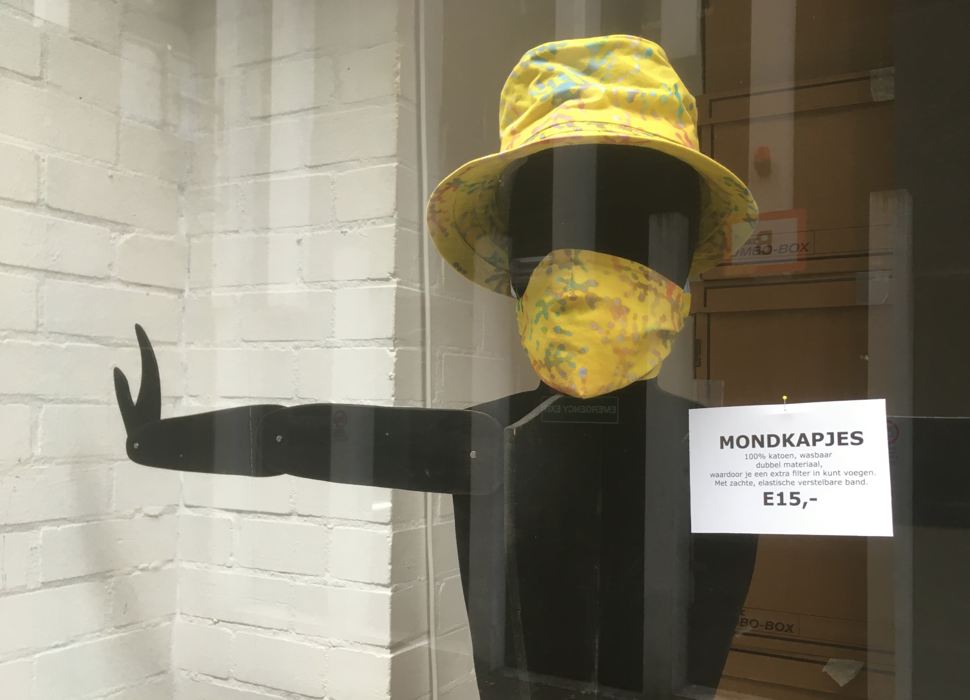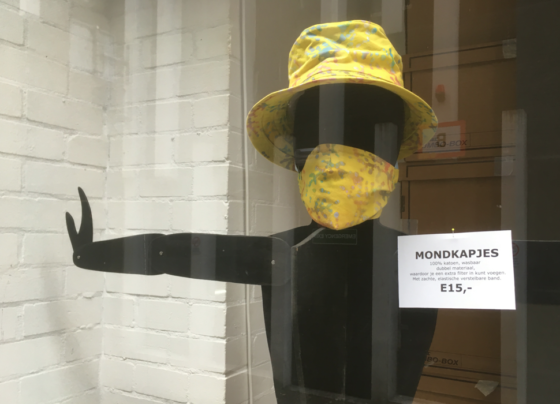Face masks, testing and an app: what the Dutch are doing


The Dutch government has decided that face masks should be worn on public transport from June 1 and that by June there should be sufficient capacity to test everyone showing coronavirus systems. So what exactly are the Dutch current positions?
Face masks
Prime minister Mark Rutte told reporters at Wednesday evening’s press conference that according to the government’s experts, there is some evidence face masks can be useful in situations where keeping 1.5 metres distance is not possible – as long as they are used correctly.
As public transport will become busier on June 1, when people have more options to go out, face masks will then have a role. This is ‘not primarily to protect yourself but to protect others,’ Rutte said.
However, these face masks should not be of medical grade, because these are reserved for healthcare workers, and the government has no plans to introduce standards for the face masks in general use.
Home-made masks are completely acceptable as long as they cover the mouth and nose, the prime minister said. The government is planning to put instructions on how to make your own online.
Jaap van Dissel, head of the infectious diseases department at the public health institute RIVM, has said in the past he is concerned that using masks would give rise to a false sense of security and that people would stop washing their hands and keeping their distance if they were made compulsory.
And he told MPs on Thursday non-medical face masks only keep 5% to 10% of infections at bay. Most let 40% to 80% of droplets issued during a sneeze or a cough through – depending on the type of material. The decision to make them compulsory on public transport, he said, is a political choice.
Other Dutch experts agree they are no subsitute for keeping away from others. ‘If we keep to 1.5 metres distance, face masks really don’t have a role,’ UMC Utrecht professor Jan Kluytmans told the NRC.
Testing
The categories of workers eligible for testing if they have coronavirus symptoms is being gradually extended to cover teachers, police and emergency service workers. By June, and hopefully June 1, everyone who has symptoms of coronavirus should be able to get a test, health minister Hugo de Jonge told Wednesday’s press conference.
However, even though the Netherlands currently has capacity to carry out 17,000 tests a day – with the option of extending this to 29,000 – just 28,000 tests were carried out in the past week.
This, officials say, is because fewer people are coming forward for testing in the categories which are now eligible, because the virus is being brought under control.
Currently around 10% of tests are turning out to be positive. A positive result then requires a comprehensive system of tracking and tracing contacts – and this, the government hopes, will be started up more quickly.
App
An app, which was seen a few weeks ago as the solution to tracking potential coronavirus carriers, is now being downplayed. Work is ongoing but the app will have an additional role to humans doing the leg work, De Jonge said.
People who do test positive once testing is opened up to everyone with symptoms will have to say home in quarantine for two weeks and local health boards will start tracing their contacts.
‘If we carry out 30,000 tests a day and one in 10 or 20 is positive, that means local health boards will have to carry out a contact trace on a few thousand people,’ Feike Sijbesma, who is in charge of expanding testing capacity, told broadcaster NOS.
‘Local health boards must have that capacity by June, and they have said they will be able to cope,’ Sijbesma said.
By tracking the spread of the virus, officials hope to be able to snuff out any local flare-ups quickly, and take more localised measures to stop the virus spreading.
‘We want to be in control… and to keep the virus under control,’ De Jonge said on Thursday evening.
The Netherlands will also keep capacity at IC units at 1,700 to be able to cope with any surge in coronavirus cases.
Thank you for donating to DutchNews.nl.
We could not provide the Dutch News service, and keep it free of charge, without the generous support of our readers. Your donations allow us to report on issues you tell us matter, and provide you with a summary of the most important Dutch news each day.
Make a donation